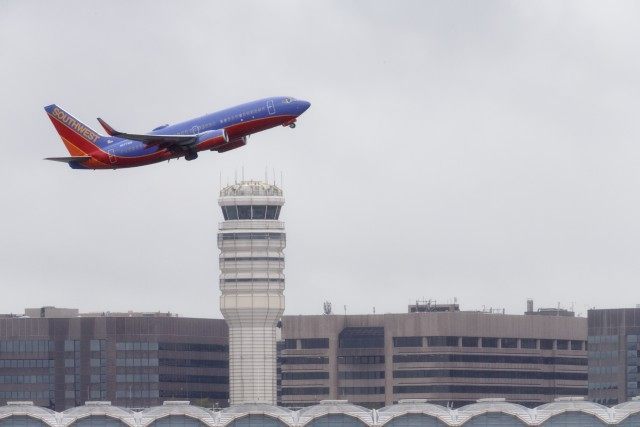As lawmakers headed home for a week of vacation–or as some of them return next weekend, earlier than they had expected–they’ll certainly notice the nation’s airports are not in tip-top shape.
And yet, as any air traveler has noticed, it’s not for a lack of taxes and fees. There are at least six taxes and fees tacked on to the cost of every plane ticket, ranging from a 7.5 percent Domestic Passenger Ticket tax down to a $0.044 per gallon aviation fuel tax.
The crumbling infrastructure will become a growing problem because more people are expected to travel by air in the years ahead. The solution is to give more power to local governments and the airports themselves.
For example, right now, airports may impose a $4.50 Passenger Facility Charge (PFC), but they then have to apply for federal permission before they may use the money to fund improvement projects. Also, as the Tax Foundation points out, the money is not always returned to the busiest airports that collect it.
“The most important, most popular airports generate plenty of revenue for the government but do not necessarily get that money back to spend on their own capital expenses,” it argued in a paper this month, adding, “Much of the funding granted by the federal government could be better spent by the airports directly.”
The solution would be to allow local airports to collect their own PFC and keep the revenue to fund improvements. This should end up benefitting air travelers because it should make those airports less dependent on federal tax revenue. Perhaps some of those other taxes could be decreased as the PFC raises more revenue at busy airports.
Lawmakers say they are searching for cost-effective transportation solutions. An easy one is right in front of them every time they fly: move power out of Washington and send it back to local airports.

COMMENTS
Please let us know if you're having issues with commenting.